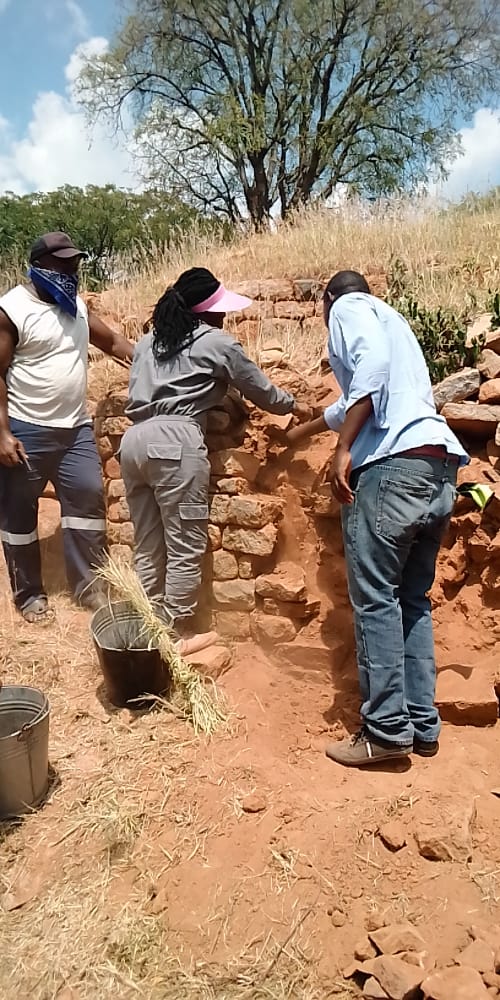
SPROUT Women Empowerment Trust founded in 2018 with the aims of addressing challenges faced by women in acquiring opportunities and resources to fully in sustainable economy. It also focuses on governance and leadership with the primary objective of community development whilst nurturing the environment in the rural, peri urban and urban vulnerable spaces through training, awareness raising and advocacy. With contemporary economic situation where a lot of people have lost their livelihoods due to COVID 19 and Marco Economics climate prevailing in the country a lot of women are vulnerable.
The organisation is failing to take care of the ever-increasing number of girls and women in need of help, hence the dire need of Resources Mobilization officer. The Resource Mobilization Officer will contribute to SPROUT work through research/documentation, social media, monitoring and evaluation and resource mobilization. The ideal candidate will be specially involved in identifying and responding to opportunities for funding. Volunteers will also be involved in capacity-building activities, especially for the girls. S/He will learn from other staff members to perform duties.
Communication or media studies preferred, experience in communications, editing communication content including writing compelling stories; Experience in grant writing and resource mobilization; Strong negotiation skills with experience in influencing, creativity, innovativeness, and entrepreneurial thinking; Proficient user of Microsoft Suite; Adept at using social media platforms (e.g. Facebook, Twitter etc.); Strong oral and written English language
skills: Ability to work independently
Food: Basic meals will be provided from what is locally available in the local community. Volunteers are therefore advised to be flexible and open-minded. This will make it easy for them to negotiate their entry into the community.
Accommodation: Volunteers will be accommodated by host family Rooms will be available to individual volunteers. Volunteers with special needs like seniors/aged, families and physically challenged will have special arrangements for their accommodations
We encourage volunteer to bring enough money for leisure purposes
You are advised to take a DOUBLE ENTRY BUSINESS VISA which cost approximately USD$50.00 for thirty days. This will help you to travel to neighbouring countries cheaper and on the same visa as scheduled on the itinerary. Single entry visas could turn out to be more expensive. Your visa should be marked BV meaning Business Visa and not TV meaning Tourist Visa. Volunteers are required to take a BV.
All volunteers intending to stay for over 30 days are required to apply for a TEMPORAL EMPLOYMENT PERMIT (TEP) which cost USD$500.00 and can be valued up to 2 years. Volunteers will be issued with a 30 day Business Visa on arrival at the port of entry which normally cost USD$30.00 depending on nationality and once they are in Victoria Falls, our Project Officers will help with the preparation of necessary paperwork for the TEP. The following documents should be provided for application of the TEP:
1. Original birth certificate and three notarised copies of the birth certificate
2. Original passport and three notarized copies of the passport
3. 3 passport size photos
4. Chest X-ray certificate (To be attained in Zimbabwe for USD$20.00)
5. Notarized copies of academic certificates (Three of each)
6. Police clearance from country of origin
All Volunteers should have a valid insurance for the entire time in Zimbabwe.
The participates will contribute €300 for all around Zimbabwe, expect for Victoria Falls where volunteers should contribute €350 because of very high cost related to Victoria falls projects.
The fee covers orientation, evaluation, monitoring, project set up, office running/administrative expenses, supporting small community projects running of activities during the project, certificate of participation, accommodation, feeding at camp and communication prior to, during and after the camp
Volunteers will be picked up from the Airport or regional bus station in on request. They will be transferred to any lodge in town of their choice. Two-day orientation will be organized in close collaboration with the volunteers and ZWA staff. The main objective of the orientation is to minimize the effects of cultural shock as well as to build capacities for the volunteers, so as to meet the community with open mind.
The population of Zimbabwe are friendly, courteous and belong to different ethnical and cultural groups. There are Shona, Ndebele, Nambya, Tonga and a variety of other tribes which keep their own traditions, beliefs and languages. Many Zimbabweans mix their native language with the official language English, which becomes a sort of dialect and varies depending on the area the tribes are dominating. Catholicism is the most common and biggest religion throughout Zimbabwe although many people still believe in spiritual doctors, witchcraft and ancestor veneration. The family for most Zimbabweans is very important, the members stay close together, men are the expected leader and the elders are highly respected and treated like a family treasure. Even in times of misery visitors may be surprised by their hospitality and generosity. Dinner is the most important meal of a day, where Zimbabwean families share their food together. Washing hands is a customary before meals because Zimbabweans, particularly in the rural areas, eat the food with their hands.
- Find a project that interests you in our Open Projects
- Find your local organisation in your country of residence using our branch locator
- Get in touch with them with details about the project(s) you want to apply to. They will become your sending organisation.
- Any issues? Contact us!
